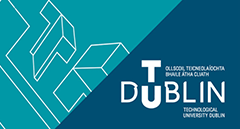Abstract
Development education and international service-learning are approaches to education that have the potential to offer students an opportunity to develop their understanding and appreciation of global issues such as poverty and inequality. In this regard, both approaches are aligned with Global Citizenship, Education for Sustainable Development (ESD) and Sustainable Development Goal (SDG) target 4.7. In this paper, the experiences of eight students who participated in an international service-learning project between 2011 and 2013 are evaluated using a survey and a thematic analysis. By undertaking the evaluation a decade following the running of the module, the analysis benefits from the pivot in the literature that has drawn attention to ethical questions that need to be considered in the design of learning experiences that bring students into communities outside of their home country. Recent literature also cautions against prioritising employability as an outcome. The analysis presented here demonstrates how some students can achieve an enhanced awareness and understanding of global issues, whilst developing important employability skills. However, outcomes may differ among students, pointing to the need for greater focus on challenging preexisting perceptions and structured reflection. Although the number of students participating in the module and thus contributing to the analysis is a limitation, the findings can contribute practical guidance to programme teams considering the design of high-impact activities involving the developing world, as a contribution towards the achievement of SDG 4.7.
Creative Commons License

This work is licensed under a Creative Commons Attribution-Share Alike 4.0 International License.
Recommended Citation
O'Leary, Ciaran and McDonnell, Claire M.
(2024)
"Embedding Development Education and International Service-Learning in Undergraduate STEM Programmes to Address Sustainable Development Goal Target 4.7,"
Irish Journal of Academic Practice:
Vol. 11:
Iss.
2, Article 11.
doi:https://doi.org/10.21427/vjxn-we26
Available at:
https://arrow.tudublin.ie/ijap/vol11/iss2/11
DOI
https://doi.org/10.21427/vjxn-we26

